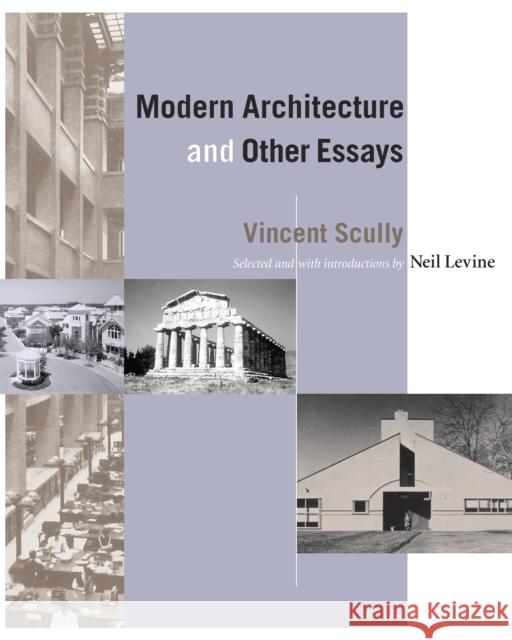Modern Architecture and Other Essays » książka
Modern Architecture and Other Essays
ISBN-13: 9780691074429 / Angielski / Miękka / 2005 / 400 str.
Vincent Scully has shaped not only how we view the evolution of architecture in the twentieth century but also the course of that evolution itself. Combining the modes of historian and critic in unique and compelling ways--with an audience that reaches from students and scholars to professional architects and ardent amateurs--Scully has profoundly influenced the way architecture is thought about and made.
This extensively illustrated and elegantly designed volume distills Scully's incalculable contribution. Neil Levine, a former student of Scully's, selects twenty essays that reveal the breadth and depth of Scully's work from the 1950s through the 1990s. The pieces are included for their singular contribution to our understanding of modern architecture as well as their relative unavailability to current readers. Levine offers a perceptive overview of Scully's distinguished career and introduces each essay, skillfully setting the scholarly and cultural scene. The selections address almost all of modern architecture's major themes and together go a long way toward defining what constitutes the contemporary experience of architecture and urbanism. Each is characteristically Scully--provocative, yet precise in detail and observation, written with passionate clarity. They document Scully's seminal views on the relationship between the natural and the built environment and trace his progressively intense concern with the fabric of the street and of our communities. The essays also highlight Scully's engagement with the careers of so many of the twentieth century's most significant architects, from Frank Lloyd Wright and Louis Kahn to Robert Venturi.
In the tradition of great intellectual biographies, this finely made book chronicles our most influential architectural historian and critic. It is a gift to architecture and its history.











